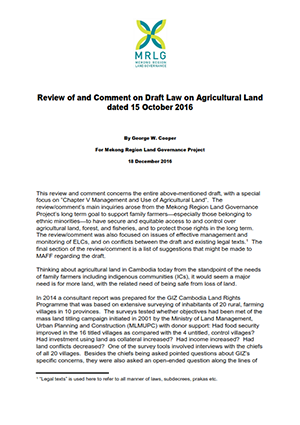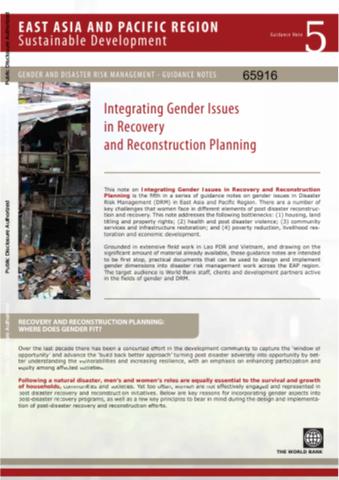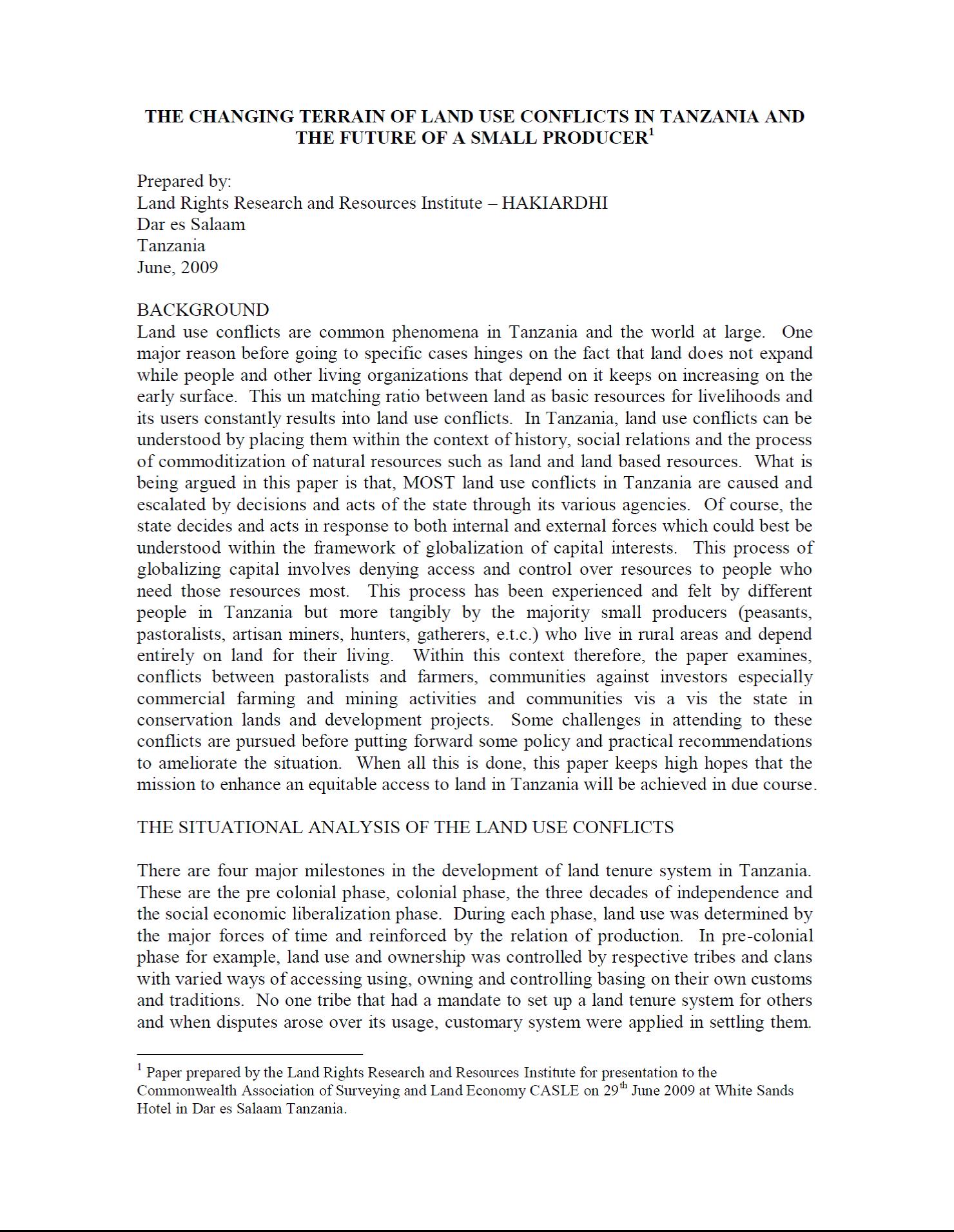Review of and Comment on Draft Law on Agricultural Land Dated 15 October 2016
As the Ministry of Agriculture, Forestry, Fisheries (MAFF) aimed to finalize in the end of 2016 the draft law on agricultural lands that is currently in 6th draft, MRLG, together with other partners, has supported the NGO Forum on Cambodia to mobilize representatives of farmer organizations and CSOs so that they could voice their concerns over the draft law directly to MAFF. In close cooperation with MAFF, a 2-day national consultation workshop was held on 19-20 December 2016 in Phnom Penh.








